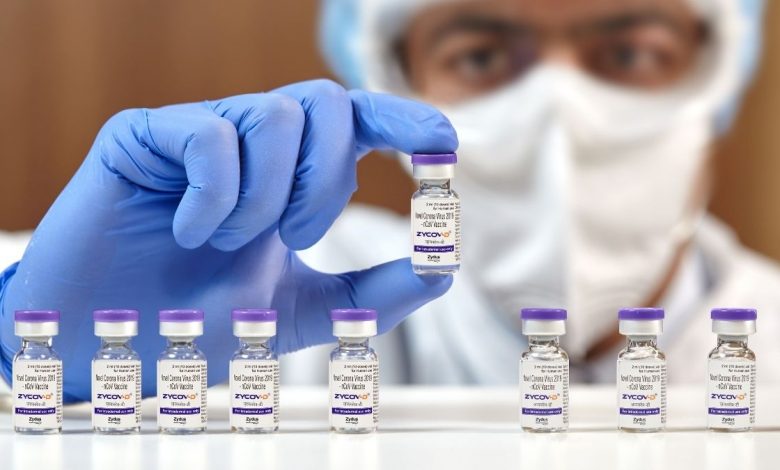DCGI approves ZyCoV-D for emergency use, first one for kids above 12 years

ZyCoV-D is the world’s first plasmid DNA needle-free vaccine made by Zydus Cadila in partnership with the Department of Biotechnology.
Zydus Cadila’s needle-free three-dose vaccine has got Emergency Use Authorization (EUA) from the DCGI on Friday. It is the first vaccine to get the nod for adolescents aged between 12-18 years in India and sixth in the list of vaccines approved.
India’s approval of ZyCoV-D, the first plasmid DNA covid-19 vaccine, will be helpful as the country still struggles to contain infections in some states. It will also be helpful to vaccinate people who are hesitant to take injections.
ZyCoV-D is the second indigenous vaccine to get a nod from DCGI after Bharat Biotech’s Covaxin.
ZyCoV-D shows efficacy against Delta variants
During clinical trials, the listed drugmaker, Cadila Healthcare, reportedly said that ZyCoV-D had shown some efficacy against the delta variant. Zydus Cadila has sought approval on July 1 based on the efficacy rate of 66.6 percent for symptomatic RT-PCR positive cases in the later stages of clinical trials conducted on 28,000 volunteers. The clinical trials were touted as the largest vaccination trial in India to date.
The vaccine uses a section of genetic material from the virus and sends a signal to the DNA or RNA to make an immune system responsive protein and aids in virus clearance. It was developed in partnership with the Department of Biotechnology.
Pankaj R. Patel, Chairman of Cadila Healthcare, said, “This is a historic milestone with ZyCoV-D, a product of Indian innovation, becoming the world’s first DNA vaccine being offered for human use and supporting the world’s largest immunization drive.”
Meanwhile, the pharmaceutical firm has also sought approval for the two-dose regimen of the vaccine, the company said.
ZyCoV-D: How To Use
ZyCoV-D will be administered in three doses and will be applied using The PharmaJet needle-free system and Tropis. It will lead to a significant reduction in any side effects, the company added. The intradermal vaccine is stored between 2 degrees Celsius and 8 degrees Celsius.
However, it has shown good stability at 25 degrees Celsius for at least three months. The thermostability of the vaccine will help in easy transportation and storage. It will further reduce any cold chain breakdown challenges, the press release added.
The plasmid DNA platform provides ease of manufacturing with minimal biosafety requirements (BSL-1). It does not have any issues with vector-based immunity, the firm added.
The platform also allows generating new constructs quickly to aid in dealing with the fast mutation of the virus.
Advantages Of DNA Vaccine
In an article published in the Frontiers in Immunology, the authors argue that the main advantage of the DNA vaccine is its ability to stimulate both the humoral and cellular arms of the adaptive immune system. For humoral immunity, the generation of antibodies by B lymphocytes against invading pathogens is one of the most effective defenses mounted by the immune system.
It states that the DNA vaccine model is versatile. The vaccines can treat malignancies and autoimmune or genetic disorders in addition to the prevention of infectious diseases.
